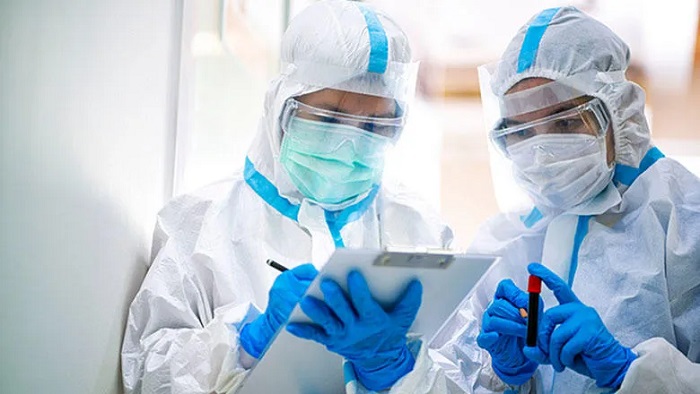Health
Pandemic Prevention Strategy: King’s Academic Launches Report to Address Laboratory Risks

- Filippa Lentzos launches report at UN Headquarters, emphasizing the need for global governance in high-risk pathogen research post-COVID-19.
- Report underscores critical gap in global occupational health governance and advocates for increased monitoring and legislation to prevent future pandemics.
Dr Filippa Lentzos has launched a new report at the UN Headquarters in New York on the governance of high-risk pathogen research to safeguard populations from future pandemics.
The report was developed in the wake of the COVID-19 pandemic to examine the risks posed by scientific research on pandemic pathogens —bacteria, viruses and other microorganisms that are highly transmissible and capable of uncontrollable spread in human populations.
It highlights a critical gap in global occupational health and safety governance, which currently focuses on biosafety risks to laboratory researchers but does not sufficiently address the risks posed to the public. It underscores the urgent need for increased monitoring and legislation to prevent pandemics that could surpass the devastation caused by COVID-19.
Dr Lentzos is an expert in Science and International Security at King’s College London and co-director of the Pathogen Project’s independent task force. This is made up of 28 experts with backgrounds including biosafety, biosecurity, epidemiology and virology and the new report Framework for Tomorrow’s Pathogens Research investigated the potential for accidental, inadvertent or intentional disease outbreaks from laboratories.
According to the report, research involving pandemic pathogens should only proceed if researchers and regulators can demonstrate that it will be conducted safely and responsibly. Additionally, researchers should prove that no alternative or safer research could meet the same public health ends and that it will bring substantial benefits to communities worldwide in the near future. The report also emphasises the need for local, national and international monitoring of this research, along with increased funding allocation to optimise biorisk management strategies and timely data sharing.
The overarching aim of the Framework for Tomorrow’s Pathogens Research is to create a safe, secure and responsible research environment for researchers and in doing so, to earn public trust.
Dr Filippa Lentzos
At the launch of the report, Christopher King, Chief of the United Nations’ Weapons of Mass Destruction Branch, said the international community needs to strengthen measures to prevent the hostile exploitation of biology.
The COVID-19 pandemic has demonstrated the devastating harm that the global spread of infectious diseases can cause, and it doesn’t take much imagination to see how much worse things could be if biological agents were to be used in a deliberate manner as either weapons on the battlefield or as weapons of terror.
Christopher King
Several researchers also addressed the devastating impact of misinformation during the COVID-19 pandemic, including the role of leaders in fueling opposition to the COVID-19 vaccination programme. Professor David Relman, Senior Fellow at the Centre for International Security and Cooperation at Stanford University, said it was crucial that the scientific community works to rebuild public trust.
Trust by the global public in science in general and in research on potential pandemic pathogens in particular has become threatened and to some degree has already been lost. The reasons are many and understandable. Some have argued that scientists have simply failed to communicate clearly their purpose and the benefits from their science, but there is much more that is needed and much that is at stake … One of the goals of this project is to create conditions where trust can once more be regained.
Professor David Relman
The report is the result of an 18-month investigation into the benefits and risks of research on pandemic pathogens. Task force members held virtual meetings throughout and met in Geneva, Switzerland, in April for a three-day public conference, with participation from policy leaders, journalists, scientists and civic leaders. The report and a recording of the launch event is available on the Bulletin of the Atomic Scientists website.
Source: King’s College London




















































